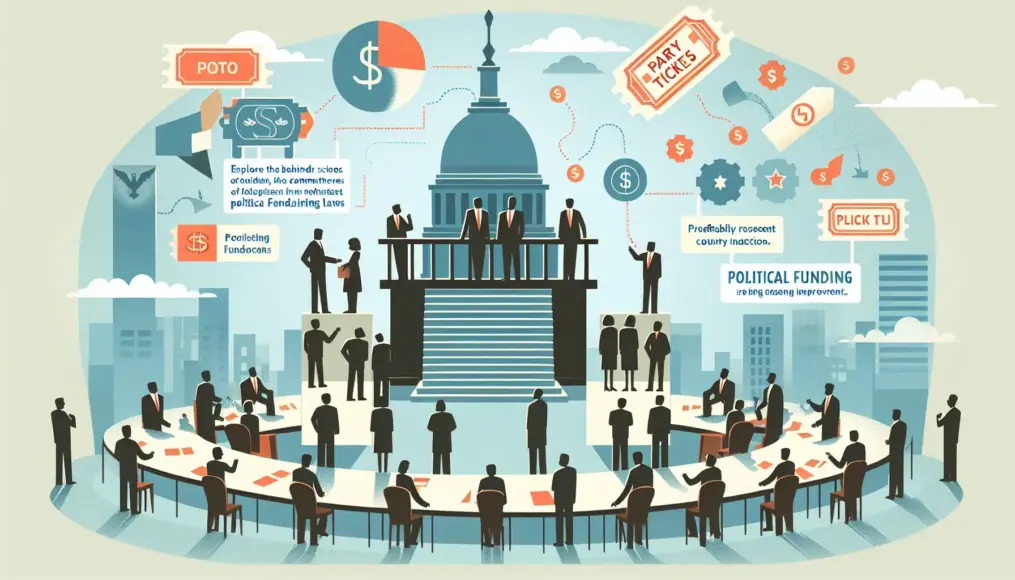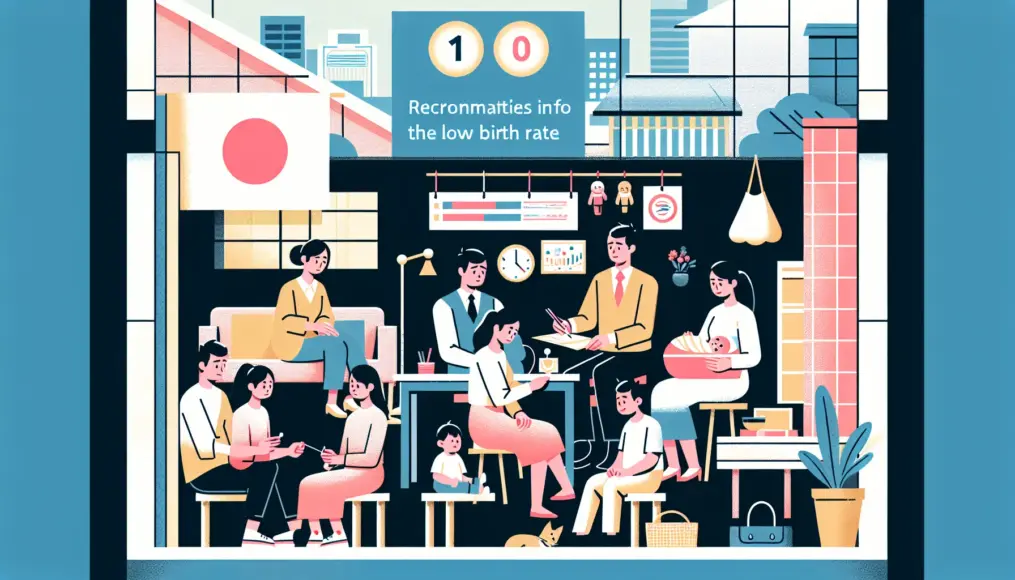The Political Funds Regulation Law is essential for maintaining transparency in our political system, but there are many complex issues lurking beneath the surface. One of the key fundraising methods, known as party tickets, strengthens the relationship between politicians and businesses while also leading to various problems. In this article, we will explore the background of the Political Funds Regulation Law, its major amendments, and the mechanisms and realities surrounding party tickets.
We will also examine the challenges posed by the Political Funds Regulation Law and potential improvements, discussing how we as citizens can engage with these issues. There is much we need to know to enhance transparency in politics, so we hope you’ll stay with us until the end.
- An overview of the origins and key amendments of the Political Funds Regulation Law
- An analysis of the circulation of party tickets and their impacts
- Suggestions for improving transparency in political funding
The History and Background of Japan’s Political Fund Control Law
The Political Fund Control Law is a crucial piece of legislation designed to ensure transparency in the flow of money within Japanese politics and to promote healthy political activities. Its establishment was significantly influenced by the issues of political corruption that plagued post-war Japanese society. In particular, there was a growing concern about the impact of corporate and organizational funding on political processes, which led to calls for a law to address these concerns.
In this section, we will delve into the origins of the Political Fund Control Law and highlight key amendments made since its inception. Understanding the historical context behind the quest for transparency in political funding will deepen our comprehension of politics today.
Origins of the Law
The Political Fund Control Law was enacted in 1974. At that time, political corruption had become a pressing social issue in Japan, with heightened worries over the influence of corporate donations on politicians. In response to this situation, there was a recognized need for legislation to ensure transparency in political financing, leading to the creation of the Political Fund Control Law.
The backdrop for the law’s enactment aimed to clarify the relationship between politics and money while restoring public trust. As a result, mechanisms were established to monitor the inflow and outflow of funds in political activities.
- The Political Fund Control Law was enacted in 1974.
- The rise of political corruption was a motivating factor for its establishment.
- Restoring public trust was a primary goal.
Key Amendments
Since its enactment, the Political Fund Control Law has undergone several revisions. Notably, a significant amendment in 1994 prohibited corporate donations, tightening regulations on the flow of political funds. This revision enhanced the transparency of political financing and helped create an environment where politicians could operate more fairly.
Additionally, recent changes have strengthened regulations concerning the handling of party tickets, implementing measures to prevent opaque flows of political funds. These efforts aim to clarify the relationships between politicians and corporations, with the expectation of reducing opportunities for misconduct.
For those interested in exploring more about the transparency of political funding and the importance of fair political activities, we recommend the article “What Are the Issues with Political Party Subsidies? A Thorough Analysis of Their Effects and Challenges.” This article provides a multifaceted examination of the background and impacts of the political party subsidy system, while also addressing its connection to the Political Fund Control Law.
- The 1994 amendment banned corporate donations.
- Transparency in political funding has improved.
- Strengthened regulations on party tickets are expected to help prevent misconduct.
Understanding the Mechanics and Realities of Party Tickets
Party tickets are widely used by politicians as a method to raise funds. This system not only helps gather the necessary resources for political activities but also serves as a means to strengthen connections with supporters. However, the circulation of party tickets is fraught with various issues, raising concerns about transparency and fairness. In this chapter, we’ll delve deeper into how party tickets work and the realities surrounding them.
Party tickets are sold as fees for attending events and gatherings hosted by politicians. The funds generated from these sales are typically allocated to election campaigns and political activities. However, when the buyers of party tickets are corporations or organizations, there are concerns about potential influence over politicians, leading to ongoing debates about the ethics of these transactions.
A Fundraising Strategy
Party tickets are considered an effective way for politicians to secure the funds they need. Generally, to attend a party or event organized by a politician, one must purchase a party ticket. This system simplifies the flow of money in political activities and strengthens relationships with supporters.
On the flip side, there are drawbacks to selling party tickets. When corporations and organizations buy these tickets, they may seek special privileges from politicians, which can lead to a lack of transparency. Such situations can conflict with the objectives of political fundraising regulations.
- Party tickets are one of the fundraising methods used by politicians.
- When buyers are corporations, issues of favoritism can arise.
- Lack of transparency contradicts the goals of political fundraising laws.
The Circulation of Party Tickets
The circulation of party tickets is a critical factor affecting the transparency of political funding. Typically, party tickets are sold through politicians’ events, where attendees can purchase them on-site. However, in recent years, online sales have become more prevalent, making it easier for a larger number of people to buy tickets.
While this shift in distribution methods has contributed to broader access to party tickets, it also poses risks for misconduct. In particular, when the distribution of party tickets lacks transparency, there are concerns about inappropriate relationships between politicians and businesses.
- Party tickets are sold through events.
- Online sales are on the rise.
- Lack of transparency in circulation increases the risk of misconduct.
Issues with Political Fund Regulation Law
The Political Fund Regulation Law was established to enhance transparency in politics, but it has numerous shortcomings in practice. One of the main criticisms is the opaque flow of funds and the environment that allows for misconduct to occur easily. This section will delve into the specific issues surrounding the Political Fund Regulation Law.
The lack of transparency in the flow of funds makes it difficult to ascertain the sources from which politicians receive their financial backing. This situation raises suspicions about the relationships between politicians and businesses, ultimately undermining public trust.
Opaque Flow of Funds
While the Political Fund Regulation Law aims to make the flow of funds transparent, its effectiveness is often questioned. For instance, since funding can come from various sources such as donations from supporters or the purchase of party tickets, it becomes challenging to track where the money is coming from and how it is being collected. This poses a significant obstacle to monitoring how politicians handle their finances.
Moreover, there are often shortcomings in the reporting of political funds, leading to inadequate audits. Such a lack of transparency in the flow of funds creates a situation far removed from the transparency that the law seeks to ensure.
- Opaque flow of funds is problematic
- Diverse funding sources complicate oversight
- Insufficient reporting and audits undermine transparency
A Breeding Ground for Misconduct
Under the Political Fund Regulation Law, the lack of clarity around the flow of funds creates an environment conducive to misconduct. In particular, when party tickets are purchased by companies or organizations, it can lead to demands for special privileges from politicians, thus becoming a breeding ground for corruption. Such conditions significantly compromise the transparency that the regulation aims to achieve.
Additionally, there are instances where loopholes in the law are exploited to misappropriate funds, contributing to a growing distrust in politics. Even when adhering to the Political Fund Regulation Law, there remains a possibility of misconduct occurring, highlighting the need for further reassessment.
- An environment conducive to misconduct exists
- Purchases of party tickets from companies encourage corruption
- Risks of misappropriation by exploiting legal loopholes
Solutions and Future Outlook
To address the issues surrounding the Political Funds Control Act, it’s crucial to enhance transparency and encourage citizen participation. By doing so, we can clarify the flow of political funding and foster healthier political activities. In this section, we’ll explore specific improvement measures and discuss future prospects.
Enhancing Transparency
Improving the transparency of political funding starts with strengthening the system of information disclosure. Specifically, it’s essential for politicians and political parties to regularly publish detailed reports on the funds they receive. Making this information easily accessible to the public will help clarify the flow of money and ensure transparency.
Additionally, regular audits by oversight bodies or third-party organizations can be highly effective. This will help prevent misconduct and promote adherence to the Political Funds Control Act. Enhancing transparency is also vital for building trust between politicians and citizens.
- Strengthen the information disclosure system
- Regularly publish details of received funds
- Implement audits by third-party organizations
Promoting Citizen Participation
Encouraging citizen participation is not only key to increasing the transparency of political funding but also essential for nurturing public interest in politics. This can be achieved by increasing opportunities for community involvement in political activities and providing platforms for citizens to express their opinions. Such efforts will deepen public engagement and encourage more people to pay attention to political developments.
Moreover, hosting citizen-engagement events and workshops can effectively raise awareness about the mechanisms and importance of political funding. Through educational initiatives, we can inspire the next generation of citizens to take an active interest in politics.
For those interested in this topic, we highly recommend reading the article that unravels the political issues behind the Cherry Blossom Viewing Party. This matter is a significant event in Japan’s political landscape and offers valuable insights into the need for transparency in political funding and increased citizen participation.
- Increase opportunities for community political involvement
- Provide platforms for citizens to express their opinions
- Deepen understanding through educational events
Conclusion
In this article, we explored the Political Fund Control Act and the system of party tickets in detail. This law is crucial for ensuring transparency in politics, but it also reveals underlying issues, such as opaque funding flows and opportunities for misconduct. To tackle these challenges, enhancing transparency and encouraging citizen participation are essential.
By improving information disclosure and strengthening audits, we can clarify the flow of funds and encourage citizens to engage more actively in politics, ultimately fostering a healthier political environment. Looking ahead, if these initiatives are successfully implemented, we can expect an increase in public trust regarding political funding.
- The Political Fund Control Act is an important law for ensuring transparency.
- Opaque funding flows and misconduct are significant concerns.
- Enhancing transparency and citizen participation are needed solutions.
There are many ways we, as citizens, can help address the issues surrounding political funding. We’d love to hear your thoughts and experiences in the comments!



Comment